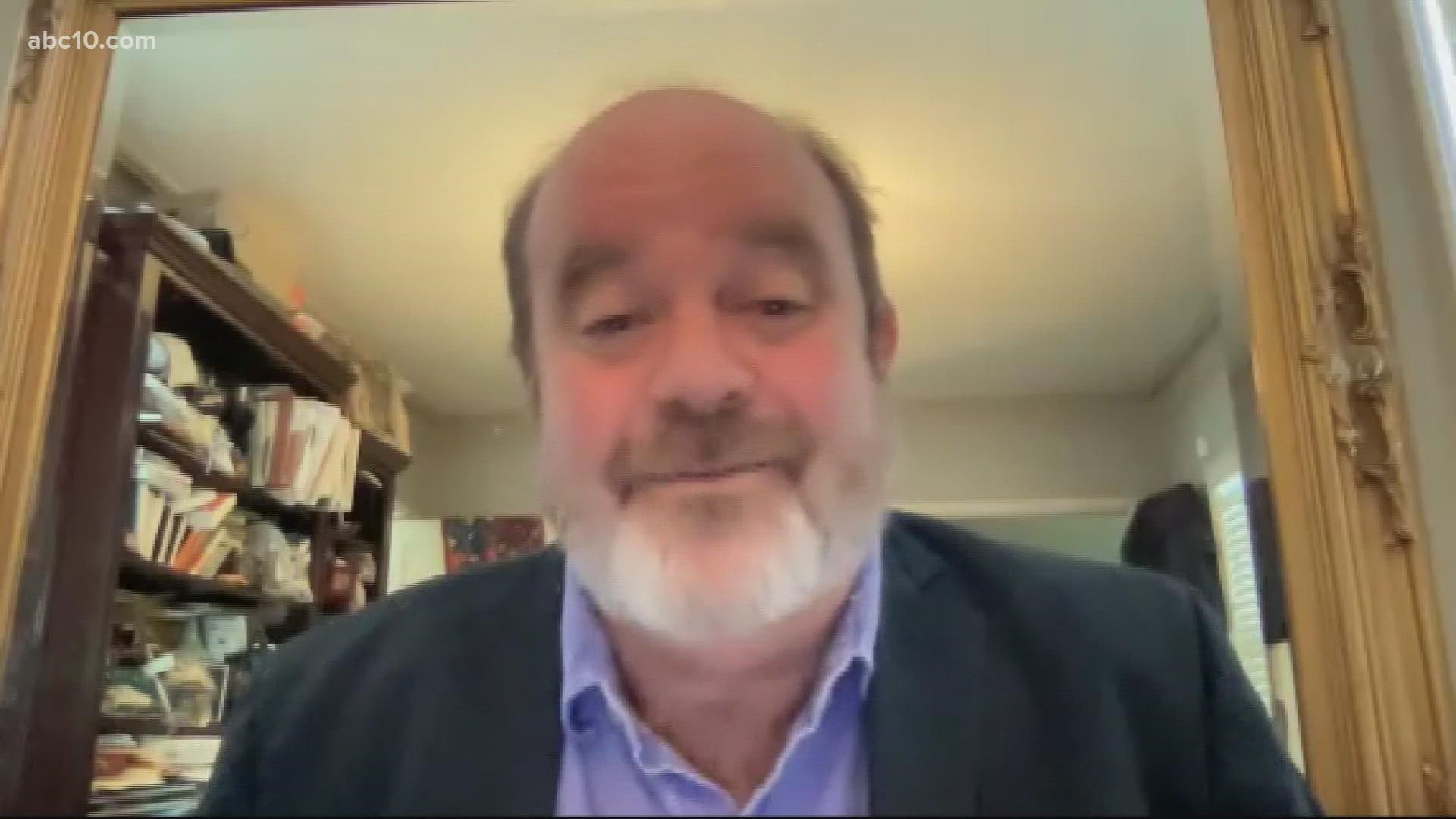SACRAMENTO, Calif. — A new bill would require oil companies to disclose the profits that they’re making, and there’s a reason behind it.
Californians are still paying what some experts call a "mystery surcharge" for a refinery outage that happened in 2015 and has since been fixed.
Even after all of the taxes Californians pay at the pump are accounted for, the numbers still don’t add up.
Here's part of what Californians are paying at the pump per gallon right now:
- 51 cents in state taxes
- 24 cents for the cap and trade program
- 13 cents for low carbon fuel
“About $2.50 of what you pay is for crude oil, and the other $4, if you buy at the expensive station by campus, or 3.50 if you buy elsewhere, but less than half of it is crude oil,” UC San Diego economist Mark Jacobsen said.
Subtract the difference other states pay in taxes and Californians should pay about 60 cents more per gallon. However, based on Monday's national average, Californians are paying $1.60 more.
"We're paying for the fact that five oil refiners control 96% of the gas supply, and when they want to squeeze us to make more money because there's a world event that allows them to, they do it," said Jamie Court with Consumer Watchdog, a non-profit that's been around for 35 years.
It begs the question as to where that extra dollar is coming from.
Court says 30 cents of it can be explained by a 2015 refinery outage, which has since been resolved, but Californians are still paying for it.
"It's something that the oil refiners basically take for their own profits because they charge their own branded gas stations 30 to 40 cents more per gallon when they deliver the fuel to them," Court said. "They charge the unbranded independent state stations 30 to 40 cents less for the same exact fuel. They started doing this in the wake of the 2015 Exxon Mobil refinery outage in LA, I believe, because it was a way of making more money."
Court doesn't classify this charge as a mystery.
“That is what the mystery surcharge is," he said. "I don't think it's a mystery. We know they're doing it. We don't know why they're doing it. I think they're doing it because they can do it.”
That still leaves 70 cents unaccounted for. Court says the refineries could be pocketing the rest.
However, Jacobsen says some of it could be because of California's rules and regulations.
“The response from the refineries would often be to point out things like more environmental restrictions, more labor restrictions, higher wages, all of these things in California that also make producing gasoline here much more expensive than in other states,” Jacobsen said.
Court is working with state Senator Ben Allen on a bill that would require the oil refineries in California to disclose how much profit they’re making per barrel, like they do in other parts of the country.
Jacobsen said if everyone discloses they’re making a profit, it’s not like people have somewhere else to turn to.
"Disclosure of profits could create political pressure, right, but I'm not sure it creates competitive pressure necessarily, " he said. "So if we learn that all the refineries and gas stations are making a lot of profit, that doesn't help you, because there's nowhere else you can go, right? Unless you want to drive to another state or something."
To avoid these extra costs, Court said to go to a wholesaler like Costco or Sam’s Club because they don’t have that 2015 surcharge.
WATCH ALSO:



















